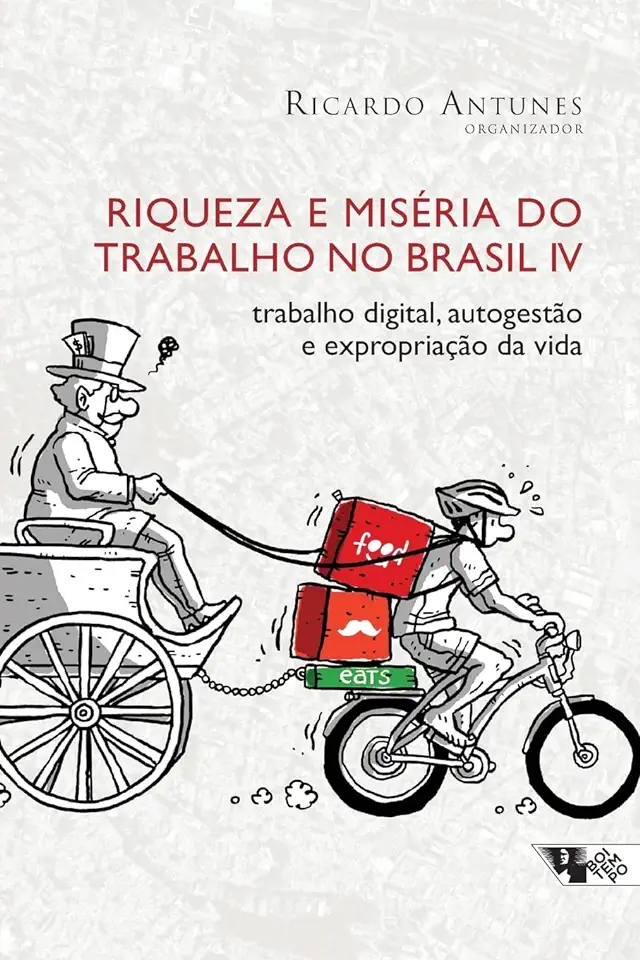
Wealth and Misery of Work in Brazil - Ricardo Antunes
Wealth and Misery of Work in Brazil: A Must-Read for Understanding the Complexities of Labor in Brazil
In his groundbreaking book, "Wealth and Misery of Work in Brazil," renowned sociologist Ricardo Antunes delves into the intricate relationship between wealth and misery in the context of Brazilian labor. Through a comprehensive analysis of historical, economic, and social factors, Antunes presents a compelling narrative that challenges conventional notions of work and its impact on society.
Unveiling the Dualities of Brazilian Labor
Antunes begins by exposing the stark contrasts that characterize the Brazilian labor landscape. On one hand, Brazil boasts a vibrant and diverse economy, with flourishing industries and a growing middle class. On the other hand, the country is plagued by persistent poverty, inequality, and precarious work conditions. Antunes argues that these disparities are not merely coincidental, but rather the result of deeply ingrained structural issues that have shaped Brazil's economic and social development.
Historical Roots of Labor Exploitation
To fully comprehend the current state of labor in Brazil, Antunes delves into the historical roots of labor exploitation. He traces the origins of Brazil's labor issues back to the colonial era, when the country's economy was heavily dependent on slave labor. The legacy of slavery, Antunes argues, has left a lasting impact on Brazilian society, perpetuating a culture of exploitation and inequality that continues to manifest in contemporary labor relations.
The Rise of Precarious Work
One of the central themes explored in the book is the rise of precarious work in Brazil. Antunes meticulously documents the increasing prevalence of informal employment, outsourcing, and subcontracting, which have led to a decline in job security, benefits, and workers' rights. He argues that these trends are not simply the result of economic globalization, but also the outcome of deliberate policies that favor capital over labor.
The Human Cost of Labor Exploitation
Antunes paints a vivid picture of the human cost of labor exploitation in Brazil. He highlights the physical and mental health risks faced by workers in dangerous and unhealthy work environments. He also exposes the gendered and racial dimensions of labor inequality, demonstrating how women and minorities are disproportionately affected by precarious work conditions.
Challenging Conventional Notions of Work
Antunes challenges conventional notions of work by arguing that it is not merely a means of generating income, but also a source of identity, dignity, and social cohesion. He critiques the dominant economic paradigm that treats labor as a commodity, and calls for a revalorization of work as a fundamental human activity.
A Call for Social Transformation
"Wealth and Misery of Work in Brazil" is not merely an academic treatise, but a call for social transformation. Antunes concludes the book by proposing a series of concrete policy recommendations aimed at addressing labor exploitation and promoting social justice. He argues for the strengthening of labor unions, the expansion of social protection, and the implementation of policies that prioritize the well-being of workers.
Conclusion
"Wealth and Misery of Work in Brazil" is a must-read for anyone interested in understanding the complexities of labor in Brazil and the global South. Antunes' incisive analysis and compelling narrative provide a powerful critique of the current economic system and its impact on workers' lives. The book is a valuable resource for scholars, policymakers, activists, and anyone concerned with social justice and the future of work.